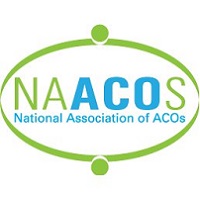 By Aisha Pittman, MPH, Senior Vice President, Government Affairs, & Clif Gaus, Sc.D., President and CEO, NAACOS
By Aisha Pittman, MPH, Senior Vice President, Government Affairs, & Clif Gaus, Sc.D., President and CEO, NAACOS
X: @NAACOSnews
NAACOS has been advocating for several changes to the Medicare Shared Savings Program (MSSP). We push for policies we feel would increase participation in accountable care organizations (ACOs) and help CMS reach its stated goal of having all Medicare beneficiaries in a relationship accountable for quality and total cost of care by 2030. Thankfully, CMS has heard concerns raised by NAACOS and ACOs and has proposed several changes to the MSSP that would benefit the program, patients and taxpayers. NAACOS supported many of these policies and others in comments submitted this week to the proposed 2024 Medicare Physician Fee Schedule. Below are key proposals that we support.
- Capping regional risk score growth since NAACOS has long advocated for a similar policy;
- Eliminating the negative regional adjustment as it would remove the disincentive for ACOs with spending higher than their region to participate in MSSP;
- Using a consistent risk model in both the performance and all benchmark years but urge CMS to apply a consistent risk model for all ACOs, not just those starting new agreement periods next year;
- Modifications to improve the advance investment payments; and
- Considering future enhancements to the Accountable Care Prospective Trend and future development of a higher risk track than the current Enhanced.
While we are supportive of many policies, we are concerned that some policies will increase provider burden. The goal of alternative payment models should be to innovate care and reduce burden. To that end, we suggested the following to CMS to reduce burden:
- Provide detailed feedback on ways to improve the beneficiary notification process;
- Retain the attestation of certified electronic health record use and oppose proposals to align the requirement with the merit-based incentive payment system; and
- View the Medicare clinical quality measure option as a permanent option until digital quality measurement and reporting is feasible for all ACOs.
Additionally, we are concerned about the proposed 2024 Medicare conversion factor of $32.75, a decrease of 3.34 percent from the 2023 rate. When physician payment is cut, clinicians face an untenable financial landscape on which to adopt value-based care, which takes investment in staff, extra services, and technology. We must ensure that clinicians in fee-for-service receive adequate payment and build additional financial and nonfinancial incentives for clinicians to adopt accountable care.
Building on the future
NAACOS offered a few ways that CMS can further accomplish its goal of increasing ACO participation and the number of beneficiaries in accountable care models.
Address the benchmark ratchet. Over the next two years, the majority of MSSP participants will enter new contract agreements and have their benchmarks rebased and lowered due to achieving savings during the current contract cycle. It is critical that we ensure ACOs have fair and accurate benchmarks. Lowering benchmarks because of the ratchet effect reduces providers’ ability to improve care and reduces the ACO’s opportunity to achieve success and reinvest shared savings into beneficiary care.
Remove burden from the program. Beyond payment incentives, reduction of the fee-for-service burden is a key recruitment tool to bring clinicians into the ACO model. We are concerned that certain policies (e.g., electronic quality reporting and beneficiary notifications) are increasing burden within the program. Clinicians in an ACO model should be rewarded with burden reduction. CMS should examine all policies and ensure that the ACO program is not introducing new regulatory burdens.
Support inclusion of all providers within the model. ACOs are a unique opportunity to coordinate care across the care continuum. While providers across the continuum participate in ACOs, more can be done to bring additional providers into the model. We encourage CMS to offer primary care population-based payments to increase primary care participation, encourage specialist engagement in ACOs, and provide additional technical support for provider participants that are not paid under the Physician Fee Schedule such as federally qualified health centers and critical access hospitals
Strengthen nonfinancial incentives within the model. Despite the Innovation Center’s testing of several waivers in ACO demonstrations, waivers available to MSSP ACOs have been limited. CMS must rapidly expand MSSP waivers and should create a process to accept public nominations for waivers in MSSP, similar to the process by which the public could annually request additions to the Medicare telehealth services list.
This article was originally published on the NAACOs blog and is republished here with permission.
